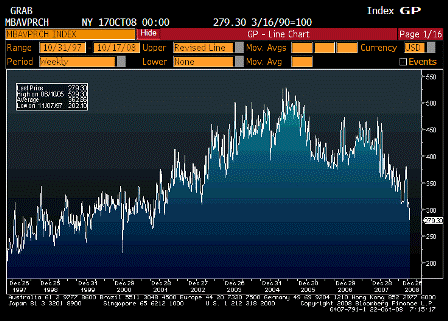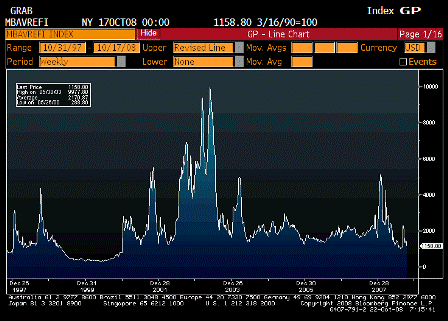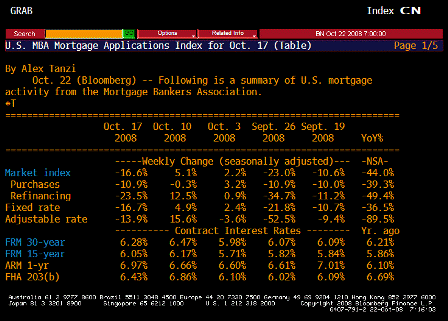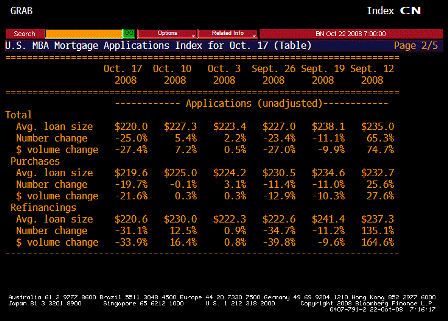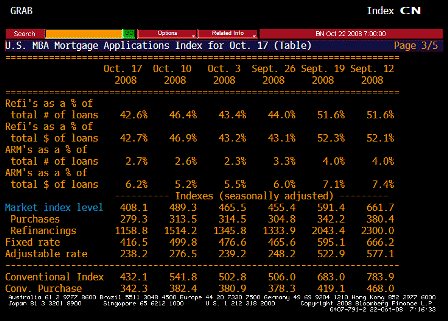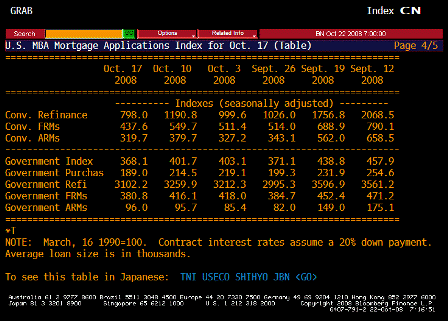Europe adds to Bank Plans in Bid to Blunt Likely Recession
By David Gauthier-Villars and Leila Abboud in Paris, Sara Schaefer Munoz in London, and Mike Esterl in Frankfurt
Some European governments are looking at going beyond government aid to banks to help businesses, in an effort to inject money directly into the economy as lending remains stagnant and a continent-wide recession looms.
Italy’s government said Tuesday it was working on a package of economic-stimulus measures that could include guaranteeing corporate debt, a move that could give distressed Italian companies a new advantage over rivals elsewhere — and if enacted could set off a new round of cross-border competition, or complaints, about national aid.
Sounds highly inflationary, if the Italian guarantee is worth anything in the credit markets.
French President Nicolas Sarkozy called for the creation of sovereign-wealth funds to defend big companies from being bought up by non-Europeans at bargain prices, and proposed an “economic government” to coordinate euro-zone economic policy.
Also sounds highly inflationary as well as operationally problematic.
No talk of giving the euro parliament the fiscal authority to (deficit) spend their way out of the mess they have created.
[top]




